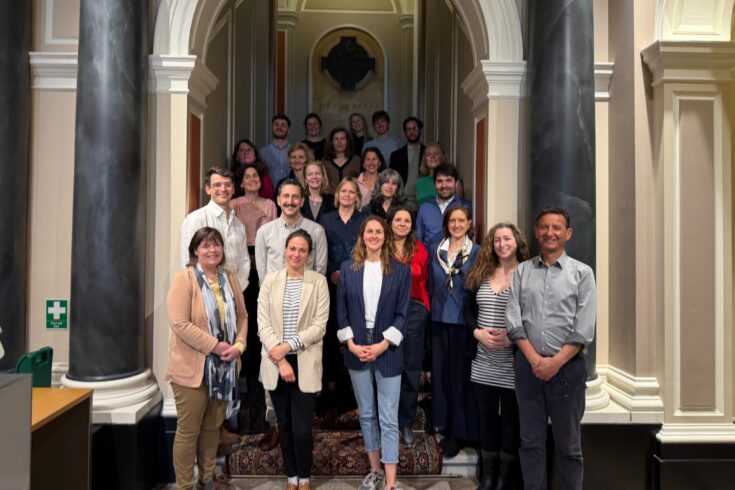The workshop, held at the Royal Society of Chemistry’s Burlington House in London convened delegates from across Europe, predominantly from research funding organisations, but also with academics as well as experts and leads from organisations conducting research.
This workshop was a continuation from an inaugural workshop hosted by the European Molecular Biology Organization in 2024. An output of which was the publication of the Heidelberg Agreement, of which UK Research and Innovation (UKRI) is a supporter.
Alongside being a signatory of the Concordat for the Environmental Sustainability of Research and Innovation Practice, these initiatives and the workshop itself highlight the growing recognition and interest in research, enabling organisations to come together and find solutions for reducing the environmental cost of conducting research.
Sector alignment
During the workshop, presenters from around Europe shared their thought-leading efforts in the area, including:
- Science Europe’s Greening Research Working Group
- the EU Commissions update of the Marie Skłodowska-Curie Actions Green Charter
UKRI presented its initiative to develop a standard approach to sustainable research practices through SPARK-Hub (short for Sustainable Practice And Research Knowledge Hub). This resource will be an open-source platform which will provide standard actions, training, means to estimate emissions, and certification for recognising sustainability performance in research. UKRI proposes that the platform be collaboratively supported and managed by research funders across the sector, which will be announced later this year.
Crucially, the workshop featured the NHS’s approach to supply-chain engagement through their Sustainable Supplier Roadmap. This provided inspiration for the research sector on how to align in an area that’s responsible for the greatest source of emissions for most organisations.
Next steps
Moving forward, UKRI hopes to continue to provide leadership in this area through updating and sharing of our environmental sustainability strategy, which will be published later this year too.
In recognition of the value of this event, and to provide continuity, the Dutch Research Council (NWO) in The Netherlands was selected to host the next workshop on the environmental sustainability of research in 2026.
UKRI will be supporting the development of a terms of reference for the group, to allow increased membership and participation by the sector.
We look forward to continuing to play a role as both a convenor and leader in the environmental sector and reflect what our research tells us about the necessity to act now.




